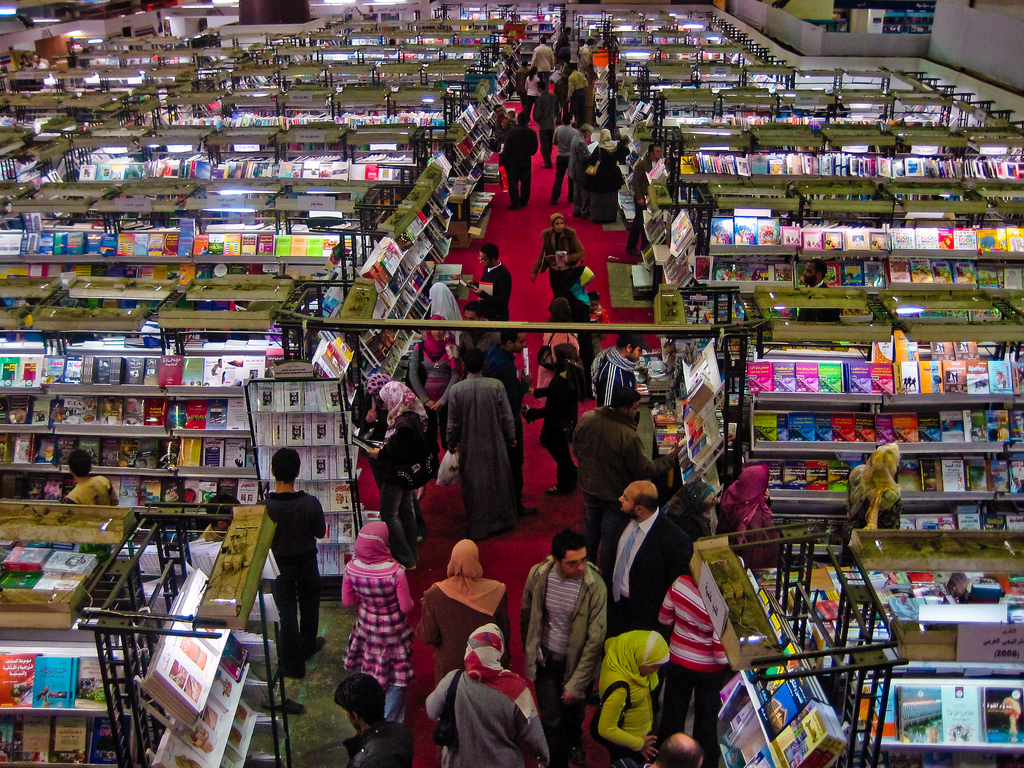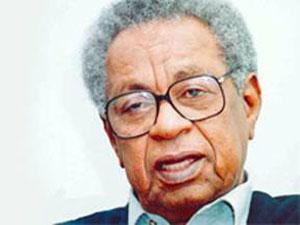|
Najlaa Eltom
Najlaa Osman Eltom (, born 1975) is a Sudanese writer, poet and translator writing in Arabic. She also has translated short stories by other Sudanese literary writers into English. Since 2012, she has been living in Sweden. Biography Eltom became part of the literary scene in Sudan during the early 2000s. In 2001, she participated at the International Book Fair in Abu Dhabi, and in 2007 at the Cairo Book Fair and the British Council's Writers Encounter. She published her first poetry collection, whose title translates in English as ''The Doctrine of Thinness'', in Cairo in 2006. In 2016, her second poetry collection was published in Istanbul. The English translations for her poems were published in Banipal magazine 55: ''Sudanese Literature today''. Some of her poems were also published in the anthology ''Modern Sudanese Poetry'' by translator and editor Adil Babikir, who commented: “As a female writer in a literary tradition dominated by male figures, Najlaa had to deal with ... [...More Info...] [...Related Items...] OR: [Wikipedia] [Google] [Baidu] |
Arabic
Arabic (, ' ; , ' or ) is a Semitic language spoken primarily across the Arab world.Semitic languages: an international handbook / edited by Stefan Weninger; in collaboration with Geoffrey Khan, Michael P. Streck, Janet C. E.Watson; Walter de Gruyter GmbH & Co. KG, Berlin/Boston, 2011. Having emerged in the 1st century, it is named after the Arab people; the term "Arab" was initially used to describe those living in the Arabian Peninsula, as perceived by geographers from ancient Greece. Since the 7th century, Arabic has been characterized by diglossia, with an opposition between a standard prestige language—i.e., Literary Arabic: Modern Standard Arabic (MSA) or Classical Arabic—and diverse vernacular varieties, which serve as mother tongues. Colloquial dialects vary significantly from MSA, impeding mutual intelligibility. MSA is only acquired through formal education and is not spoken natively. It is the language of literature, official documents, and formal writ ... [...More Info...] [...Related Items...] OR: [Wikipedia] [Google] [Baidu] |
1975 Births
It was also declared the '' International Women's Year'' by the United Nations and the European Architectural Heritage Year by the Council of Europe. Events January * January 1 - Watergate scandal (United States): John N. Mitchell, H. R. Haldeman and John Ehrlichman are found guilty of the Watergate cover-up. * January 2 ** The Federal Rules of Evidence are approved by the United States Congress. ** Bangladesh revolutionary leader Siraj Sikder is killed by police while in custody. ** A bomb blast at Samastipur, Bihar, India, fatally wounds Lalit Narayan Mishra, Minister of Railways. * January 5 – Tasman Bridge disaster: The Tasman Bridge in Hobart, Tasmania, Australia, is struck by the bulk ore carrier , killing 12 people. * January 7 – OPEC agrees to raise crude oil prices by 10%. * January 10– February 9 – The flight of ''Soyuz 17'' with the crew of Georgy Grechko and Aleksei Gubarev aboard the ''Salyut 4'' space station. * January 15 – Alvor Agreeme ... [...More Info...] [...Related Items...] OR: [Wikipedia] [Google] [Baidu] |
Sudanese Poets
Sudanese or Sudanic may refer to: *pertaining to the country of Sudan **the people of Sudan, see Demographics of Sudan *pertaining to Sudan (region) **Sudanic languages **Sudanic race, subtype of the Africoid racial category See also *Sudanese Civil War (other) The term Sudanese Civil War refers to at least three separate conflicts: * First Sudanese Civil War (1955–1972) *Second Sudanese Civil War (1983–2005) *South Sudanese Civil War (2013–2020) It could also refer to other internal conflicts in Sud ... {{disambig Language and nationality disambiguation pages ... [...More Info...] [...Related Items...] OR: [Wikipedia] [Google] [Baidu] |
21st-century Women Writers
The 1st century was the century spanning AD 1 ( I) through AD 100 ( C) according to the Julian calendar. It is often written as the or to distinguish it from the 1st century BC (or BCE) which preceded it. The 1st century is considered part of the Classical era, epoch, or historical period. The 1st century also saw the appearance of Christianity. During this period, Europe, North Africa and the Near East fell under increasing domination by the Roman Empire, which continued expanding, most notably conquering Britain under the emperor Claudius (AD 43). The reforms introduced by Augustus during his long reign stabilized the empire after the turmoil of the previous century's civil wars. Later in the century the Julio-Claudian dynasty, which had been founded by Augustus, came to an end with the suicide of Nero in AD 68. There followed the famous Year of Four Emperors, a brief period of civil war and instability, which was finally brought to an end by Vespasian, ninth Roman empero ... [...More Info...] [...Related Items...] OR: [Wikipedia] [Google] [Baidu] |
21st-century Sudanese Writers
The 1st century was the century spanning AD 1 ( I) through AD 100 ( C) according to the Julian calendar. It is often written as the or to distinguish it from the 1st century BC (or BCE) which preceded it. The 1st century is considered part of the Classical era, epoch, or historical period. The 1st century also saw the appearance of Christianity. During this period, Europe, North Africa and the Near East fell under increasing domination by the Roman Empire, which continued expanding, most notably conquering Britain under the emperor Claudius (AD 43). The reforms introduced by Augustus during his long reign stabilized the empire after the turmoil of the previous century's civil wars. Later in the century the Julio-Claudian dynasty, which had been founded by Augustus, came to an end with the suicide of Nero in AD 68. There followed the famous Year of Four Emperors, a brief period of civil war and instability, which was finally brought to an end by Vespasian, ninth Roman ... [...More Info...] [...Related Items...] OR: [Wikipedia] [Google] [Baidu] |
Living People
Related categories * :Year of birth missing (living people) / :Year of birth unknown * :Date of birth missing (living people) / :Date of birth unknown * :Place of birth missing (living people) / :Place of birth unknown * :Year of death missing / :Year of death unknown * :Date of death missing / :Date of death unknown * :Place of death missing / :Place of death unknown * :Missing middle or first names See also * :Dead people * :Template:L, which generates this category or death years, and birth year and sort keys. : {{DEFAULTSORT:Living people 21st-century people People by status ... [...More Info...] [...Related Items...] OR: [Wikipedia] [Google] [Baidu] |
Sudanese Short Story Writers
Sudanese or Sudanic may refer to: *pertaining to the country of Sudan **the people of Sudan, see Demographics of Sudan *pertaining to Sudan (region) **Sudanic languages **Sudanic race, subtype of the Africoid racial category See also *Sudanese Civil War (other) The term Sudanese Civil War refers to at least three separate conflicts: * First Sudanese Civil War (1955–1972) *Second Sudanese Civil War (1983–2005) *South Sudanese Civil War (2013–2020) It could also refer to other internal conflicts in Sud ... {{disambig Language and nationality disambiguation pages ... [...More Info...] [...Related Items...] OR: [Wikipedia] [Google] [Baidu] |
List Of Sudanese Writers
This is a list of prominent Sudanese writers. Novelists and short story writers * Leila Aboulela (born 1964) * Fatin Abbas * Abdelaziz Baraka Sakin (born 1963) * Malkat Ed-Dar Mohamed (1920–1969) * Bushra Elfadil (born 1952), also poet * Ibrahim Ishaq (1946–2021) * Ali El-Makk (1937–1992), also translator and poet * Jamal Mohammed Ibrahim, also poet * Jamal Mahjoub (born 1960), British writer with Sudanese roots * Rania Mamoun (born 1979) * Ra'ouf Mus'ad (born 1937), also connected with Egypt * Hamed al-Nazir (born 1975) * Tayeb Salih (1929–2009) * Sabah Sanhouri (born 1990) * Mansour El Souwaim (born 1970) * Amir Taj al-Sir (born 1960) * Hammour Ziada (born 1977) Poets * Muhammad Ahmad Mahgoub (1908–1976) * Al-Tijani Yusuf Bashir (1912–1937) * Gely Abdel Rahman (1931–1990) * Salah Ahmed Ibrahim (1933–1993) * Muhammed El-Faytori (1936–2015) * Ibrahim 'Ali Salman (1937–1995) * Abed Elrahim Abu Zakrra (1943–1989) * Mohammed Abdul-Hayy (1944 ... [...More Info...] [...Related Items...] OR: [Wikipedia] [Google] [Baidu] |
Cairo International Book Fair
The Cairo International Book Fair is the largest and oldest book fair in the Arab world, held every year in the last week of January in Cairo, Egypt, at Egypt International Exhibitions Center in New Cairo, it is organised by the General Egyptian Book Organisation. The Fair is considered the most important event in the Arabic publishing world. Scale The Cairo International Book Fair is one of the biggest book fairs in the world, drawing hundreds of book sellers from around the world and about 2 million visitors each year. It is the largest book fair in the Arab world,"Censorship trims fare at Cairo International Book Fair" (Agence France Presse), '' The Daily S ... [...More Info...] [...Related Items...] OR: [Wikipedia] [Google] [Baidu] |
Sudanese Literature
Sudanese literature consists of both oral as well as written works of fiction and nonfiction that were created during the cultural history of today's Republic of the Sudan. This includes the territory of what was once Anglo-Egyptian Sudan, the independent country's history since 1956 as well as its changing geographical scope in the 21st century. Even though there exist records about historical societies in the area called Sudan, like the Kingdom of Kush in Nubia, little is known about the languages and the oral or written literature of these precursors of the Sudan of today. Moreover, the notion of Bilad al-Sudan'','' from which the name of the modern country is derived, referred to a much wider geographic region to the south of the Sahara, stretching from western to eastern Central Africa. Like in many African countries, oral traditions of diverse ethnic or social groups have existed since time immemorial, but a modern written Sudanese literature can only be traced back ... [...More Info...] [...Related Items...] OR: [Wikipedia] [Google] [Baidu] |





